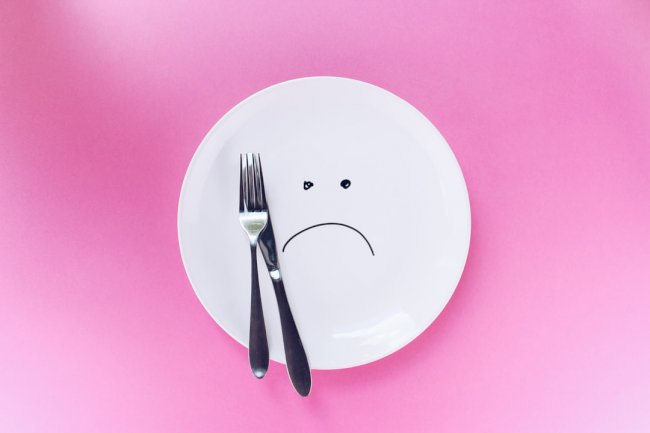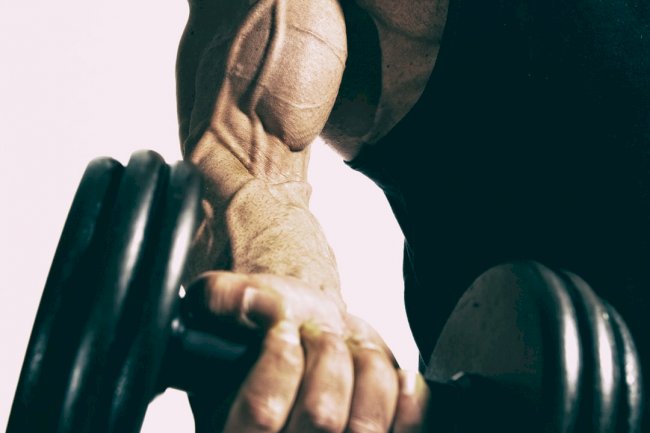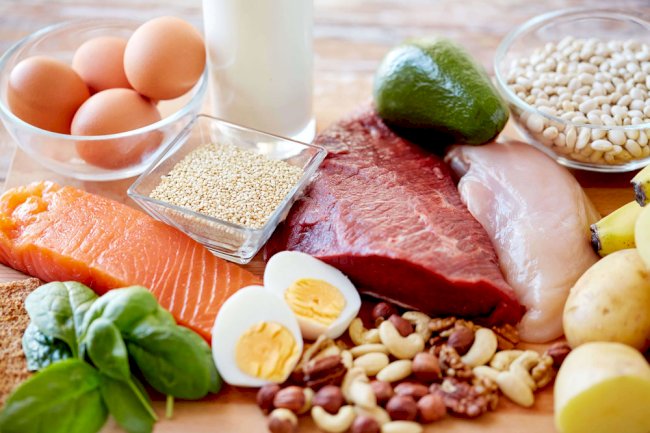Low Testosterone: Symptoms, Causes, Effects and Treatment
Low testosterone can occur at any point in a man’s life. Yet, the older he becomes, the more likely he is to experience it. Find out everything you need to know about low T, including the symptoms, causes, effects and treatment here…

Article preview
- What is testosterone?
- Low Testosterone in men
- Signs and symptoms of low testosterone
- Causes of low testosterone
- Health effects of low testosterone
- Treatment of low testosterone
- FAQ’s
- Conclusion
What is testosterone
Testosterone is the primary male sex hormone and is an anabolic steroid. It’s responsible for giving men their masculine traits, even before they’re born.
Primarily produced in the testes, testosterone plays an important role in a man’s development. It’s what triggers the deepening of his voice, growth of sex organs, and increase in sex drive during puberty. As he begins to enter adulthood, T will also help to regulate:
- Bone density
- Muscle mass
- Fat distribution
- Facial and body hair
- Voice deepening
- Sex drive
- Erectile function
From these factors alone, it’s easy to see how important healthy levels of T are. Men usually hit peak production during adolescence and carry their highest levels into early adulthood.
Medical professionals also recognize testosterone as a fundamental part of a man’s wellbeing for these reasons.
Normal T ranges vary between 300-1000 ng/dL, which can be influenced by health, age and lifestyle factors. For example, alcoholism may lower testosterone, while heavy resistance training might increase it.
If a man’s serum levels fall below this amount, he could be diagnosed with low testosterone.
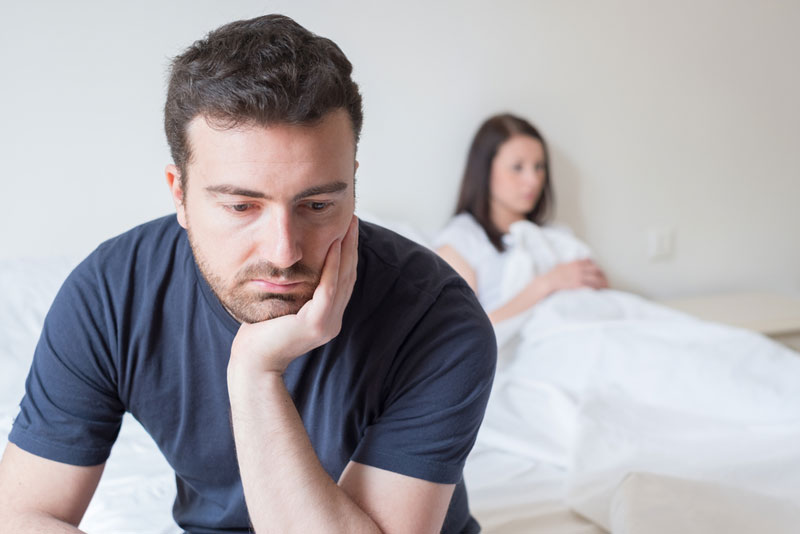
Low testosterone in men
Low testosterone, also known as hypogonadism, is a growing concern among men today. Not only are we living longer, but sedentary and stressful lives are also affecting our androgens. To put it bluntly many of us are sending our hormone health into decline.
Testosterone naturally declines by approximately one percent a year once a man reaches age 30. Yet, lifestyle, health, or pre-existing medical issues can all influence the process. Believe it or not, factors like stress and diet can be a huge factor too.
According to recent studies a quarter of US men over 30 have low testosterone. But, a much smaller amount of one in 20 have clinical symptoms linked to a deficiency. It is also suggested that because we’re all living longer this number will only increase.
Spotting signs of testosterone decline can be quite a tough time for men. If you feel like you suffer from the following symptoms make time to talk to a doctor.
Signs & Symptoms of low testosterone
Worried about your levels of free-flowing T? Take a look at this list of low testosterone signs and symptoms:
- Low libido – you might think it’s just down to getting older, but low libido might mean tanked testosterone
- Erectile dysfunction – if your levels of T fall enough you may struggle to develop and/or maintaining an erection
- Infertility – low testosterone is sometimes linked to low sperm production, leading to infertility
- Fewer spontaneous erections – a lower sex drive may also result in less spontaneous erections, especially while sleeping
- Rapid hair loss – while it’s normal for men to bald as they age, low testosterone may cause rapid hair loss across areas other than the head
- Enlarged breasts – an imbalance of the testosterone and the female sex hormone, estrogen, can result in enlarged breasts (gynecomastia)
- Chronic fatigue – if your tiredness does not improve after sleep or rest, you could have low T
- Increased body fat – testosterone helps to regulate how fat is dispersed across your body. Lower levels of energy for exercise and reduced lean mass can also increase overall levels of fat.
- Depression, anxiety, and mood changes – a drop in free-flowing androgens has been linked to major impacts on mental health and mood. These symptoms can also be amplified due to frustration from dealing with other physical symptoms of low T.
Causes of low testosterone
The causes of low testosterone can vary from man to man. While we’re all susceptible to suffering from the symptoms of a hormone imbalance, we’re still individuals. The way your body reacts to certain stimuluses isn’t always the same as somebody else’s.
Let’s take a look at what could be causing your hormonal decline…
Primary hypogonadism
For some men, low testosterone could be due to medical issues in the testes. This is known as primary hypogonadism and may be caused by:
- Mumps
- Klinefelter
- Hemochromatosis
- Testicle injury (must be inflicted upon both)
- Undescended testicles
- Cancer treatment
It’s possible for medical issues resulting in primary hypogonadism to happen at any point in your life. For example, if your body doesn’t produce ample amounts of T during fetal development, you may be born with underdeveloped genitals. Furthermore, if you fall victim to injuring both testicles later in life, you might develop hypogonadism.
Secondary hypogonadism
On the other hand, issues triggered by the pituitary or hypothalamus (inside the brain) results in improper function of the testes. This is referred to as secondary hypogonadism, which could be caused by:
- HIV/Aids
- Pituitary disorders
- Kallmann syndrome
- Inflammatory disease
- Medication (especially opiate pain medications)
- Normal aging
- Obesity
- Stress from concurrent illness
Just as with primary hypogonadism, secondary hypogonadism can occur at any point. This may be during fetal development, childhood, puberty, or adult life.
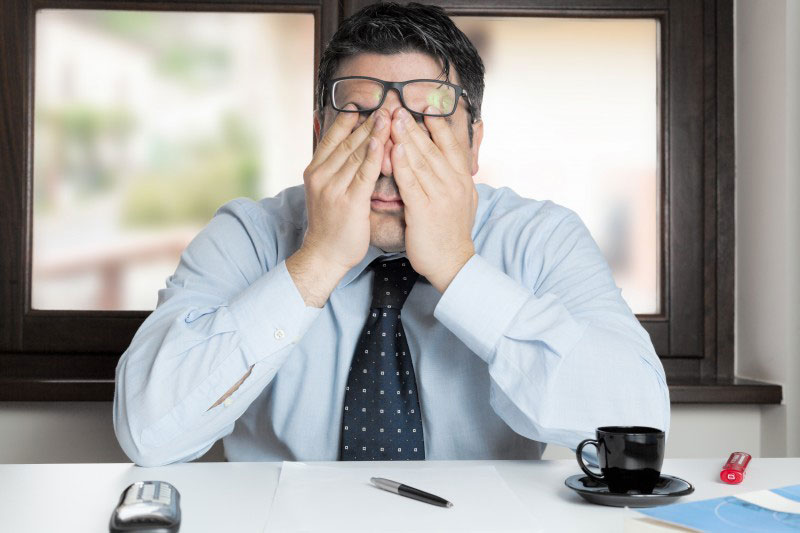
The lifestyle link
But, what about seemingly healthy men who suffer from symptoms of low testosterone? If they don’t knowingly have a medical issue, what could be the root of their problems?
In short – lifestyle. Many men in the modern world live such busy, hectic, and stressful lives it impacts their hormones. Lack of sleep [1], smoking, excessive drinking [2], narcotic abuse and stress all create a bad environment for testosterone production.
Diet can also impact how healthy a man’s testosterone levels are. If his diet lacks T-promoting nutrients like zinc, vitamin D and healthy fats, he faces compromised hormones due to deficiencies.
The fix? Aim to stay physically active, eat a well-balanced diet, cut down on alcohol, and sleep for seven to eight hours a night. These three things alone have been shown to help optimize hormonal balance.
While testosterone production might not be optimized overnight, you’ll give yourself the best chance by living healthier. It’s a simple yet effective way to combat the natural decline of your androgens.
Health effects of low testosterone
Low testosterone is a growing concern because of its various health effects. These range from mild inconvenience such as irritability, to rather serious issues such as infertility and depression.
According to the National Health and Nutrition Examination Society, men with low T are also more likely to get a chronic illness [3]. If you have a history of certain illnesses in your family tanked testosterone might put you at a higher risk.
For these reasons, medical professionals consider healthy testosterone levels to be vital for a man’s wellbeing. Not only does it impact the way men feel about themselves, but their overall enjoyment and quality of life too.
Men diagnosed with low testosterone often face:
- Increased risk of cardiovascular disease [4]
- Diabetes and metabolic syndrome [5]
- Damaged cholesterol metabolism
- Osteoporosis (reduced bone density)
- Sarcopenia (loss of muscle mass)
- Body fat increase
- Depression
- Anxiety
- Lack of concentration/brain fog
- Gynecomastia (enlarged breasts)
Understandably, being diagnosed with low testosterone is alarming for a lot of men. The physical elements not only impact the way they look, but how they feel too. His doctor may also tell him he’s at an increased risk of life-threatening conditions, which can make the worrying worse.
Furthermore, the mental side effects of low testosterone can make life challenging. Depression and anxiety could negatively affect both work and home life, while irritability may cause further friction with friend, family, and colleagues.
Loss of libido, sex drive, and sexual performance can reduce confidence and feelings of self-worth. Unfortunately, not only does this further impact mental wellbeing, but often puts a strain on relationships too.
Treatment of low testosterone
Through extensive research into food, lifestyle, and synthetic steroids, men now have a ton of options for treating low testosterone. The extent of how far they need to go will depend on the severity of their symptoms.
Say, for example, you notice a slight drop in libido. All you might need to do is look at your sleeping pattern, relieve some stress, and eat a cleaner diet to refuel your sex life.
However, on the other hand, if you’re medically confirmed as having low testosterone, you may be offered testosterone replacement therapy. This could be your answer to reclaiming your manhood and musclebound physique.
Let’s examine the possible ways of treating testosterone…
Best 5 foods for healthy testosterone
Like it or not, the food on your plate plays a huge part in hormone production. Without the right nutrients and minerals, the body struggles to produce healthy testosterone – especially as men get older.
Here are five of the best foods for testosterone health:
Tuna
A favorite among dieters, fitness advocates and athletes, tuna has always been considered a healthy food. But did you know eating it for lunch has benefits past piling your plate with lean protein?
Tuna fish is in fact full of vitamin D, something studies have shown can help combat low testosterone [6]. You’ll even find 100% of your RDA in a single can, which is just the right size for a meal or post-workout refuel.
Oysters
Small and mighty, oysters are known worldwide as being an aphrodisiac. But, if more of us understood how jam packed with testosterone optimizing zinc they were, we’d slurp them more often.
According studies, “deficiency in zinc is associated with hypogonadism in men.” [7]. So, next time you see oysters on the menu you know what to do.
Garlic
If you haven’t made the office smell enough with the sea food – throw in some garlic too. Don’t feel bad, you’ll be taking your testosterone fueling lunch one step further by doing so.
That’s because garlic is full of a soothing compound called allicin. According to experts, once in the body, allicin lowers levels of cortisol (stress hormone), which battles with testosterone for space inside muscle cells. Less cortisol = more testosterone!
It’s also recommended you enjoy your garlic uncooked for a higher potency.
Beef
Another high-protein muscle building food, beef is a winner for bolstering testosterone. Ground beef for example contains ample amounts of zinc, while liver has an abundance of vitamin D. You’ll also find copious amounts of energy-inducing iron in your steak too.
However, overconsumption of red meat raises many red flags for your health. Therefore, to reduce your risk of certain cancers, look for lean cuts. Also try to save red meat for special occasions rather than eating it every day.
Egg Yolk
Although eggs have a bad reputation for heart health, the cholesterol in their yolk might help with low testosterone. Not only that, but yolk us an exceptional source of vitamin D, alongside a ton of other nutrients. Oh, and they’re filled to the brim with muscle building protein.
Tip: Vegetarian and/or vegan? Look toward broccoli, beans and cabbage as animal-free pro-testosterone foods.
Testosterone Boosters
Testosterone boosters are a new breed of supplement on the market to improve T. Instead of taking numerous pills and powders, men can now just consume one complete formula.
Unlike anabolic steroids, testosterone boosters are legal to buy over the counter. They also won’t negatively impact your natural T production once you stop taking them.
Testosterone boosters make it possible for men to get their RDA of T-optimizing ingredients easily. Instead of worrying whether they have all the bases covered with their diet, a T booster makes sure of it. For a lot of men this can take away some of the stress of looking after their hormone health.
However, as with all supplements, there are varying degrees of effectiveness. Some manufacturers construct their formulas based on scientific evidence, while less reputable brands opt for shadier practices. One of these is filling their product with undisclosed proprietary blends.
When searching for a testosterone booster always look for high-quality, premium ingredients backed by studies. If a manufacturer is clear about their ingredients, doses, and scientific support, their product will probably provide results.
Tip: Go for a reputable premium product when possible. Poor quality ‘proprietary blends’ hardly ever live up to their promises and can be dangerous.
Testosterone replacement therapy
A lot of men who receive testosterone therapy claim their mood, sex life, and energy levels improve. For many, being administered medically approved TRT helps them reclaim their vigor, confidence, and physical prowess.
Others however claim the treatment carries far too many risks to be healthy and/or effective. TRT can also be expensive when used for both short-term and long-term solutions.
Types of testosterone replacement treatment include:
- Injections
- Patches
- Gels
- Implants
Getting TRT it isn’t as easy as just asking for a prescription from your doctor either. There are many side effects to consider and not all men with low testosterone are eligible for it.
Buying TRT without a prescription is also illegal. Selling it is a criminal offense that might lead to a jail sentence.
Because TRT is a relatively new discovery, the long-term risks aren’t currently known. Consequently, medical professionals cannot say for certain just how men who take it will be affected in the future.
FAQs
What are normal testosterone levels?
Normal testosterone levels for healthy men are between 350 ng/dL and 1000 ng/dL. Many factors can influence this number such as age, health, and lifestyle.
How do I know what my testosterone levels are?
To find out how your T levels stand up against the average you’ll need to undergo tests from a doctor. If you face any of the symptoms listed earlier, you might have low testosterone.
Can you raise testosterone naturally?
Yes! Testosterone replacement therapy isn’t the only hope for men facing low testosterone. Depending on your circumstance and severity, you may be able to increase levels with a few lifestyle changes.
A good place to start is to reduce overall bodyfat, exercise more, and sleep better. Also, if you’re able to, have more sex.
Every man knows it’s much easier said than done to change their behavior. Yet, making small adjustments can lead to big differences.
Check out our Top 8 Secrets to Boost Your Testosterone Levels Naturally & Fast
Can you self-administer testosterone?
There is a reason that medical professionals prescribe TRT. Abusing testosterone replacement therapy can result in plummeted natural T production, and in extreme cases, stop it altogether.
Synthetic testosterone should only ever be used under the guidance and clearance of a doctor. Even then there are still side effects to consider.
In short – you can, but it’s illegal and dangerous.
Is testosterone a steroid?
Yes and no.
Testosterone in its original form is an anabolic-androgen steroid hormone produced naturally inside the body. Furthermore, the synthetic testosterone used in TRT is a lab-created imitation, which is the “steroid” abused for performance-enhancing purposes.
So, yes, it is a steroid, but no it isn’t. Confused? Here’s everything explained in one handy article.
Conclusion
Low testosterone levels affect the lives of one in four U.S. men over 30. However, recent research shows that only one out of 20 men display clinical symptoms.
Testosterone naturally declines as men get older and usually starts to show at age 30. When a man reaches this point in his life, his overall levels of T will drop by around one percent per year. As time goes on, this decline becomes more substantial.
With that being said, age isn’t the only cause of low testosterone. Medical conditions, lifestyle, and diet can also cause T to plummet. For this reason, it’s becoming more apparent for men that they should take care of their body to protect their hormones and health.
If you’re diagnosed with low testosterone, you may be able to receive therapy from a doctor. This is the safest way to use TRT and is the only legal method of acquiring it. Note that low T caused by age alone isn’t usually an automatic pass for TRT.
Alternatively, if you’re only showing mild symptoms, you could reclaim a healthy hormonal balance by yourself. With a few lifestyle changes, feeding your body with the right minerals, and undoing bad habits, you could re-elevate your testosterone. After all, the body can only produce optimal T within the correct environment.
Source: spotmebro.com
What's Your Reaction?







